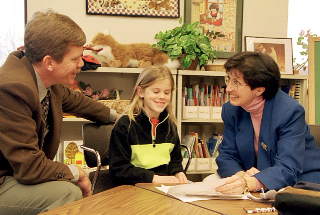I want to say big thank you to Debbie at Two Minutes of Grace, for sharing the ABC award with me. The time it has taken me to respond is no indication of how much I appreciate being thought of by Debbie.
The ABC instructions are:
Add the logo to your site.
Pass the ABC award on to other bloggers.
Use the alphabet to make a list of words describing you so readers will learn more about you.
I am pleased to pass the ABC award along to these wonderful bloggers:
“No book is really worth reading at the age of ten which is not equally, and often far more, worth reading at the age of fifty and beyond.” ~ C.S. Lewis
Debbie, I borrowed your C.S. Lewis quote to introduce my ABC list, not of words, but of children’s books I love. Some are from my own childhood, some from my daughters, and some I have enjoyed reading to my grandchildren. I have used many of them in my therapy practice with people of all ages.
An Alphabet of Children’s Books
Alexander and the Terrible, Horrible, No Good, Very Bad Day – Judith Viorst
Angelina Ballerina – Katharine Holabird
Are You My Mother? – Phillip D. Eastman
Best Friends for Frances – Russell Hoban
Corduroy – Don Freeman, Calamity – Camilla Ashworth
Dinosaur’s Divorce – Marc Brown
Ella the Elegant Elephant – Carmela & Steven D’Amico
Franklin in the Dark – Paulette Bourgeois
Giving Tree, The – Shel Silverstein
Guess How Much I Love You – Sam McBratney
Horatio’s Bed – Camilla Ashforth
I Promise I’ll Find You – Heather Patricia Ward
I Was So Mad – Mercer Mayer
Just Like You – Jean Fearnley
Just Go to Bed – Mercer Mayer
Kissing Hand, The – Aubrey Penn
Llama, llama, Red Pajama – Anna Dewdney
Miraculous Journey of Edward Tulane – Kate DiCamillo
Midnight Farm, The – Reeve Lindbergh
Not A Box – Laura Vacaro Seeger
Oh The Places You’ll Go – Dr. Seuss
On The Night You Were Born – Nancy Tillan
Polar Express, The – Chris Van Allsburg
Quiet Book, The – Deborah Underwood
Ride a Purple Pelican – Jack Prelutsky
Stellaluna – Janell Cannon
Snowy Day, The – Ezra Jack Keats
Talking Like the Rain – X.J. & Dorothy M. Kennedy
Up and Down – Oliver Jeffers
Velveteen Rabbit, The – Margery Williams
Whale’s Song, The – Dyan Sheldon
Pooh’s Xylophone Book, closest I could come to get an “X”.
You and Me, Little Bear – Martin Waddell
Zoo for Mr. Muster, A – Arnold Lobel
How many of you have found yourselves singing the ABC song in your head, maybe even under your breath, when trying to put something in alphabetical order? Please tell me I’m not the only one.



